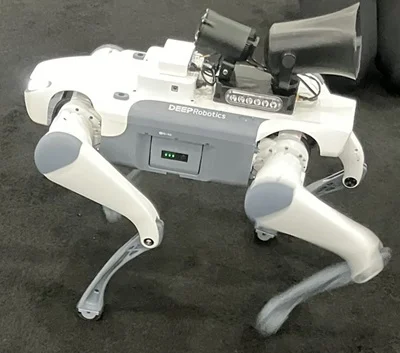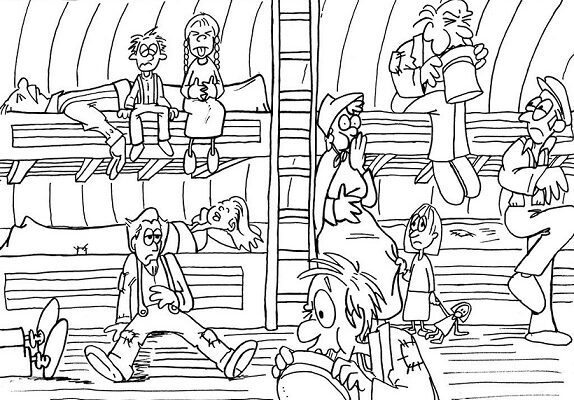My recent visit to a security technology expo at Javits Convention Center unveiled two groundbreaking innovations poised to redefine safety standards across hotels, travel, and tourism hubs.
These mechanical wonders, initially resembling sleek toy robots, cast a futuristic glow on security technology, seamlessly blending innovation with practicality.
As I delved into the narrative of these mechanized puppies, I couldn’t help but reflect on the historical fascination with automation, tracing its roots back to Aristotle’s contemplations in 322 BC. The evolution of robots, far from signaling the end of societal challenges, promises to elevate human experiences. These robots emerge as allies, undertaking tasks that amplify hospitality, enabling human staff to focus on delivering enriched service without compromising safety.
The Need for Security in Travel
In a world where numbers speak volumes, it is interesting to note that over 1.3 billion guests annually stay in American hotels. There are over 45,000 flights and 2.9 million airline passengers daily traipsing through airports, and over 9.9 billion trips were taken on public transportation in 2019. All of these people are concerned with their safety and security.
Balancing Safety, Hospitality, and Privacy
Trade organizations like the American Hotel & Lodging Association grapple with maintaining a delicate balance between robust security measures and a welcoming atmosphere. Dave Wiggins, a veteran of California law enforcement specializing in crime prevention and security planning for major visitor venues and special events, emphasizes the importance of incorporating security robots into hospitality.
According to a February 2023 study by Wiggins’ non-profit coalition, there is a notable interest in security robots, but limited integration. The study found that 88 percent of respondents were aware of the burgeoning marketplace for robotics in visitor venues, but only 7 percent indicated they have a budget to incorporate the technology in the coming 12 months. Wiggins sees these robots as a ‘force multiplier,’ augmenting the security function rather than replacing humans.
Wiggins notes that any added technology in hospitality businesses must have the blessing of corporate counsel, addressing liability concerns. He emphasizes that the technology must work as advertised, and operational processes, including selection, policy/procedure development, training, use/misuse, maintenance, and record-keeping, must be meticulously considered.
While hotels and entertainment venues are at least considering integrating technology into their operations, airports continue to rely heavily on human supervision and vehicle patrols, resulting in inefficient safety operations due to limitations like poor visibility and inconsistent human performance.
Enter the Smart Hotel
Over the last two decades, security measures at hotels and attractions have expanded in response to evolving threats, necessitating constant vigilance and increased safety budgets. The integration of technology has become pivotal, with discreet and front-and-center resources enhancing the capabilities of security officers while contributing to a guest-friendly environment.
Enter the era of “Smart” hotels, where advanced technologies seamlessly streamline operations and enhance customer interaction.
These establishments go beyond mere automation, striking a balance between innovative technology and personalized service. Robotic security, voice control systems, automated services, and intelligent guest rooms converge to create a seamless and secure guest experience.




